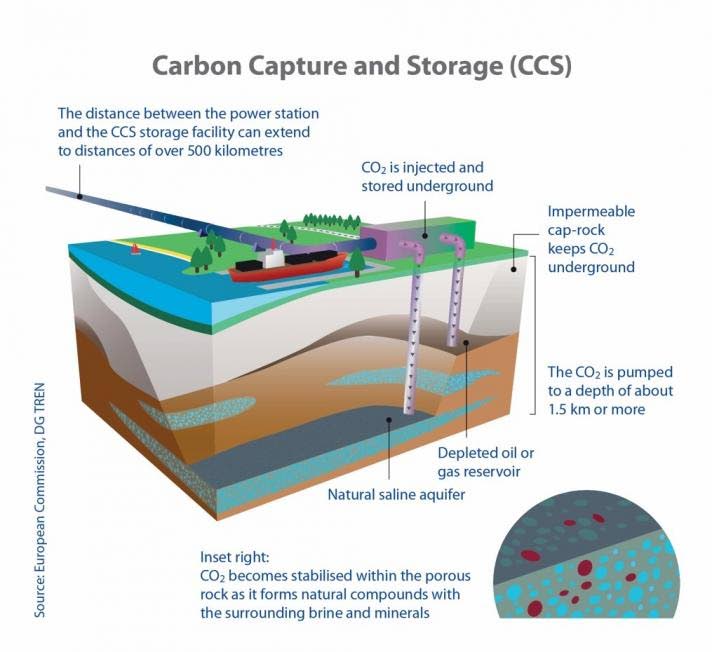Experts: Energy industry can lead fight on climate change

To many the energy industry is the biggest villain in the ongoing climate crisis. But as representatives from global oil and gas companies came together at the TT Energy Conference 2025, at the Hyatt Regency, Port of Spain, on February 10, the discussion centred around how the industry could aid climate action through decarbonisation.
In 2022 the International Energy Agency reported over 36.8 gigatonnes of carbon dioxide being emitted by the energy industry alone. Decarbonisation would see a significant reduction in this number by replacing traditional methods of production with low-carbon alternatives.
“The main message I want to leave with you is that we see the oil and gas industry as part of the solution rather than the problem,” said Rodrigo Vaz, director of upstream research at S&P Global Commodity Insights.
Vaz's presentation at the conference outlined how oil and gas companies can contribute to the global shift towards low-carbon energy while still advancing the energy industry.
In assessing how they can achieve low-carbon goals, Vaz says one of the first steps companies can take is improving operational efficiency. He said replacing equipment powered by fossil fuels with electric alternatives and effectively monitoring on-site issues such as methane leaks can catalyse major changes in operations.
Pollutive practices such as flaring and venting, which involve the burning or direct release of unused natural gas into the atmosphere, he said, can also be curbed through more effective capturing, use and conversion of the resource.
BP has reported a reduction of methane emissions from flaring and venting by using nitrogen to displace hazardous gasses. Heritage Petroleum began measuring venting and recommissioned a flare system which reduced emissions by 22 per cent. Perenco also expects to reduce emissions from 70kg of carbon dioxide per barrel of oil to 25kg by 2026 with its energy-efficiency project.

And Vaz says even declining producers can help facilitate low-carbon solutions. He gave the example of the North Sea oil rigs located in Norway. Although production in those rigs is declining, he said their infrastructure can be used to support offshore wind farms and store and transport hydrogen. The vast network of pipelines is also ideal for carbon capture and storage (CCS) which removes carbon dioxide produced by industrial processes from the atmosphere storing it deep underground.
Vaz also emphasised the need for investment. Research into innovative low-carbon solutions requires funding from companies and stakeholders and in some companies, these initiatives are already underway.
Nutrien, a Canadian energy company with a base at the Point Lisas Industrial Estate, has been engaged in developing its CCS initiatives for more than a decade. Over two million tonnes of carbon dioxide have been captured and stored at its Redwater operation in Alberta and Geismar operation in Louisiana since 2018.
Nutrien’s process involves enhanced oil recovery (EOR), a method which injects carbon dioxide into oil fields to increase oil production. The carbon dioxide then becomes trapped, significantly reducing emissions.
Although accessible, Nutrien petrochemical engineer Berkeley Downey says CCS projects require vast collaboration among suppliers and transporters as well as funding from the private sector and government.
“Projects like these needs to be economic for each of the partners involved. So that’s the fabricators, the operators, the end users of the carbon dioxide, the mainstreamers who are transporting that carbon dioxide.
“And economically, the market for decarbonisation often requires support in the forms of incentives and incremental value for carbon dioxide and other low-carbon products.”
Downey says while no method of decarbonisation can apply to the entire industry there are still many innovative ways for projects to be successful even without the support of regulations.
“There are many opportunities for symbiotic relationships between the carbon generators and carbon users and I think it really shows that you don’t have to decide between sustainable development and investment in petrochemical projects. There are opportunities for both of those things to work really synergistically.”
Locally, the government has been drafting a policy on CCS and EOR to manage the implementation of a large-scale EOR project. The policy aims to increase TT’s oil revenue and address the reduction of carbon emissions.
The appointed steering committee, chaired by the permanent secretary of the Energy Ministry, Penelope Bradshaw-Niles, has been putting the policy through rigorous review since 2021.
The committee comprises government representatives from the finance, energy, health and planning and development ministries. They have partnered with local and international energy companies including Atlantic and Heritage Petroleum and included UWI and UTT in refining the policy's details.
Bradshaw-Niles said the policy, which has gone through three drafts and been reviewed by around 70 stakeholders, considers the financial, commercial and legal aspects of CCS and EOR projects. She said the aspects of the policy include creating a commercial business model for CCS projects, government support and funding, and developing carbon pricing and carbon trading policy for both off-shore and on-shore operations. The policy review also involved visits to international CCS facilities to ensure the policy is up-to-date with modern technology and industry standards.
Although not completed, the policy is set to be submitted to Cabinet by the end of the first quarter of 2025 with a CCS pilot project set to come on-stream upon the policy’s approval.
“Together we have been steering the efforts of each of the smaller work groups and we are hoping they all come together eventually to create the right environment for sustainable projects in TT.”
Echoing these sentiments was Minister in the Finance Ministry, Brian Manning, who reaffirmed the government’s commitment to progressing sustainability. When he spoke at the Caribbean Green Infrastructure Conference (CGIC) 2025 held at the Arthur Lok Jack Global School of Business, Mt Hope, on January 23, he expressed confidence in the use of similar strategies to address financial and climate issues.
Manning said due to dependence on the energy sector TT has not traditionally considered the use of low-carbon mechanisms for financing. That conference focused on the importance of carbon credits and green bonds which work to fund climate action. Carbon credits are certificates that represent verified reductions in carbon emissions to which a monetary value is attached. These credits can then be traded to fund environmental projects. Green bonds work similarly; when issued by governments or corporations to raise money they fund environmental action that involves reducing carbon emissions, improving and protecting biodiversity and supporting sustainable agriculture.
“These two instruments align financial incentives with sustainability goals and bring climate action to the forefront of national and global agendas. A green future not only offers exciting opportunities for job creation, diversification, technology innovation, sustainable economic growth and prosperity. It has become an absolute imperative if TT is not to be left behind as the world embarks on the clean energy and clean technology transition," Manning said.
“Green bonds and carbon credits offer an innovative financial instrument to realise a green future and is designed to raise funds for projects that have positive environmental impacts such as renewable energy, sustainable infrastructure, reforestation and energy efficiency.”
Manning said for these methods to make a significant impact governments and corporations must lead the way in financing projects and collaborating with other entities. He identified strengthened regulations and a system which classifies economic activities based on their sustainability key components in the effective execution climate financing. He said his ministry remains committed to addressing climate change, sovereign-debt issues and achieve climate policy and sustainable development objectives.

Comments
"Experts: Energy industry can lead fight on climate change"